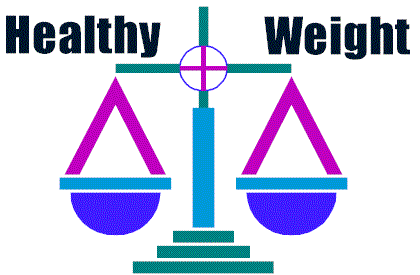negatively affected by the media's presentation of the ideal male body this article will focus on; thinness as the beauty standard for all women in our culture, how this standard affects the psychology and body image of females, and how to determine your own healthy weight.
The media in all its forms promotes thinness as the beauty ideal. Women's magazines have 10.5X more ads and articles promoting weight loss than men's magazines do, over 75% of the covers of women's magazines include at least one message about how to change a woman's bodily appearance, and approximately 80% of the female characters featured on TV and in movies are underweight.
Audiences viewing these images absorb these ideals, and as a culture we label those who are larger as unattractive and unworthy. If you think back to your childhood I am sure you will remember that during your school days the overweight kids were often the last ones picked for teams, teased about their size and discussed as being less than worthy of their thin counterparts. This makes it obvious that cultural notions about physical size color our perceptions, our language, and the way we behave. This is especially true for females who attempt to adhere to the beauty standard, as illustrated by the statistics to follow.
- In recent survey by Teen People magazine 27% of the girls reported that they felt the media pressures them to have a perfect body
- A 1996 poll conducted by an international advertising agency found that ads made women fear being unattractive or old
- At any one time, 50% of American women are dieting
- The number one wish for girls ages 11 to 17 is to be thinner
- Researchers have found that girls as young as five have expressed fears of getting fat
It is important to note that a woman's body image influences her behavior, self-esteem and psyche. When a female feels bad about her body her moods plummets and she loses confidence in her abilities. Girls and women who think poorly of their bodies tend to have problems in other areas of their lives, including her sexuality, career and relationships. The excerpt below from the Agony section of Cosmopolitan magazine that exemplifies this point:
Recently I've been really unhappy. My main problem is that I am overweight and can't see someone ever really caring about me. I have really low self-esteem and only one guy has ever really looked past my appearance and saw me for who I am. I am so lonely and don't know what to do. I would give anything to be thin. I have taken diet pills and made myself vomit and tried to starve myself, but I don't have a lot of will power. I'm planning on seeing a therapist, but can you help me with my problem?
A female with a healthy body image has feelings about her body that are positive, confident and self caring. This image is necessary to care for the body, to find outlets for self-expression and to feel comfortable with oneself as a person. But how does one move towards developing a positive body image? This is a complex issue, but one part of the answer is to determine what your own healthy body weight is and to move towards achieving and maintaining it, instead of focusing on a beauty standard that is unattainable for over 97% of the population. So how does one ascertain what her healthy body weight is?
Presently, the Body Mass Index (BMI) and Waist Circumference (WC) measures are considered the best indicators of a person's healthy weight. Your BMI is calculated by dividing your weight in kilograms by your height in metres squared. If that calculation results in a number that falls within the range of 18.5-24.9 you are at a healthy weight. For waist circumference the measure is taken midway between the bottom margin of your lowest rib and the top of your pelvic bone while you are standing with your feet about 25-30 cm (10-12") apart. A WC measurement of >88cm (35") for women and >102 (40") for men is associated with increased risk of disease and ill health.
In summary, determining your own healthy body weight is not difficult, though shifting one's mindset away from upholding 'thinness' as the beauty standard might be. For the majority of females in our society the battle against the real or imagined bulge is a constant over the course of their entire lives. This preoccupation with their weight often negatively impacts their mental state, and ultimately the way they interact with the people around them. For this reason, education regarding what is considered a healthy weight is fundamental to improving the mental health and body image of women and girls. And, when more young girls and women are informed about the notion of a healthy weight, the idea that thinness is the only beauty standard for women will slowly be replaced with the knowledge that being healthy makes you truly beautiful.
Bisa Dobson is the owner of Focus on Fitness Personal Training and Lifestyle Coaching.
To learn more about your health, personal training, and lifestyle
coaching visit www.focusonfitness.ca [http://www.focusonfitness.ca]
Article Source:
http://EzineArticles.com/?expert=Bisa_Dobson

.jpg)